When I was about 5 years old, my mom and us kids lived in a massive farmhouse with my aunt, uncle, and cousins. I loved being around all the farm animals but was always a bit skeptical of the loud, boisterous geese. One morning, while we were doing the morning chores, I had a nasty encounter with a flock of geese. At least, it felt like a nasty encounter to my 5-year-old self. I know better now and have come to an understanding of the situation.
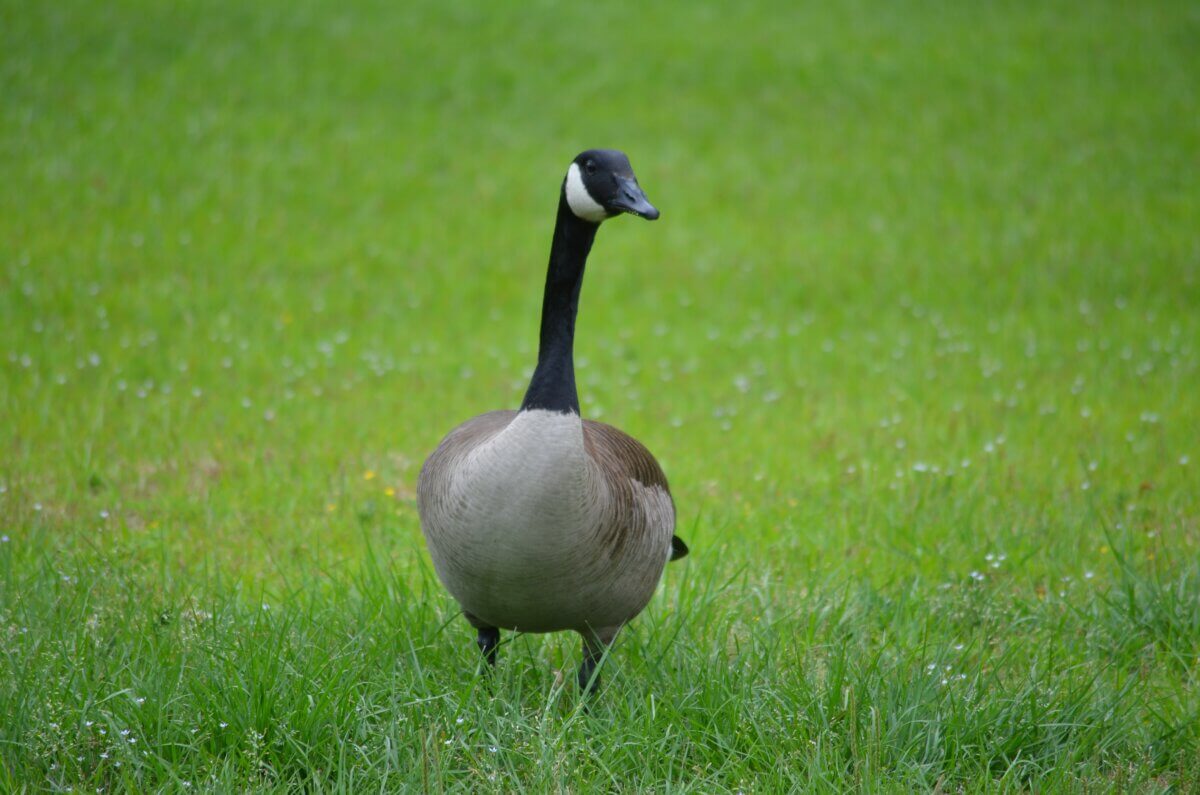
If you’ve been considering whether to raise geese, you’ve come to the right place. While geese are not the best fit for all homesteads, farms, or hobby farms, domestic geese do add beauty, a bit of laughter, and some service, too.
Top Benefits or Reasons to Raise Geese
If you are skeptical like I once was, stick around for a bit and learn about the benefits geese can bring to a backyard or homestead.
Geese Are Low-Maintenance Creatures
Geese are relatively self-sufficient animals for the most part. These critters are some of the best foragers — as long as they have free access to a yard with quality pasture. Geese need little to no supplements for one-third of the year when conditions are right for a thriving environment.
Consider this: While ducks are enthusiastic bug-hunters, 6 to 7 ducks tend to require as much feed as a gaggle of a dozen geese. I find this quite impressive, considering that geese are about 3 to 4 times the size of domestic ducks. My chickens are fine foragers, but they can be a bit lazy. While they have free range of the property, they often come running to me for their vittles.
The amount of supplemental feed geese will require depends on the amount and quality of the vegetation on your property. When given the space to free range with optimal food sources, geese will happily consume various grasses, seed heads, weeds, aquatic plants, and the windfall of fruit trees. Remember that these plants will lose their nutritional density as autumn approaches, which is when the supplemental feed becomes more necessary.
In addition to foraging and feeding themselves, geese are relatively resilient. Consider these examples:
- Geese have large, tough feet that are typically less susceptible to developing bumblefoot.
- They are cold hardy.
- A dame (female goose) lays eggs for 4 to 5 months out of the year, which tends to make them less likely to experience reproductive ailments like becoming egg-bound.
Geese Will Gladly Keep Your Grass and Weeds Trimmed
Being some of the best domesticated, foraging birds, it can be expected that your gaggle or skein will keep your lawn trimmed and pesky weeds at bay. Using moveable fencing allows you to rotate the flock throughout the property where you want or need trimming and weeding done. I’m a huge fan of free-ranging, but there is no telling which area they will hit. Your chances of having a finely manicured area are higher if you place them where you want them for a time.
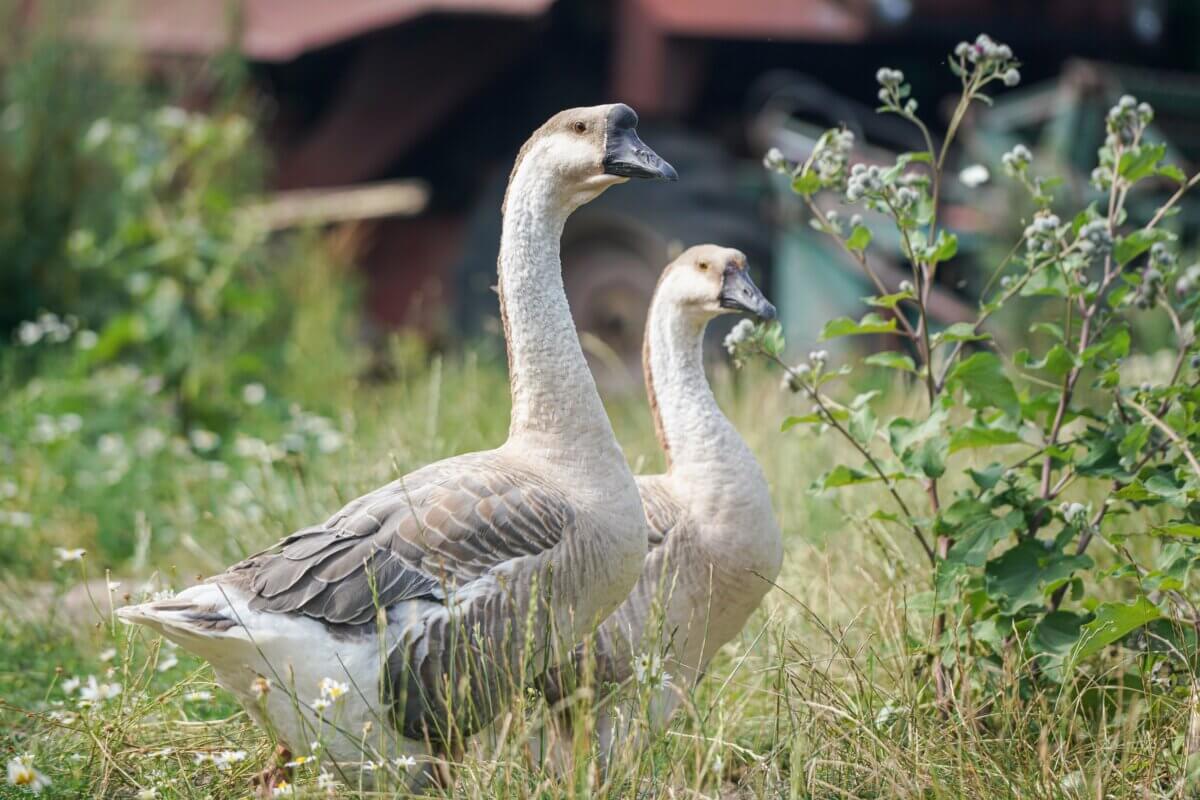
Introducing goslings to the weeds you prefer them to maintain will help create a customized weed-control system. The younger they are when introduced to something, the more likely it is they’ll develop a taste for those plants.
If you have an orchard or even a few fruit trees, geese serve as an excellent cleanup crew because they devour the leftover windfalls on the ground. When I worked at an orchard, I learned that picking up the ground fruit is essential for maintaining healthy trees. Why not let the geese save you from some of the tedious work?
Goose Manure Is Exceptional
Geese poop a lot, and it’s an exceptional manure. Goose manure might possibly be one of the least offensive of all the bird families. A little water goes a long way because goose poop quickly dissolves and sinks into the soil, which fortifies it with rich nutrients.
I should warn you, given the freedom to free range the property means these birds will poop wherever they want. Given the opportunity, they love hanging out on sidewalks, driveways, porches, and other hard surfaces. I don’t know why these birds like concrete as much as they do, but it is true. If you don’t want to clean goose manure off these surfaces, you may want to use portable fencing to keep it under control. It sprays off relatively easily, however.
Geese Don’t Need a Pond to Be Content
Yes, geese are waterfowl, which means they need water, but they do not require a pond to be satisfied or thrive. Unlike ducks, who thrive and benefit from full-body immersion, geese only need water that’s deep enough to submerge their entire head. Submerging their head is essential for cleaning their sinuses after they eat.
If you have a pond, even a small one, that’s a wonderful bonus. Geese will also chill in small bathtubs and larger kiddie pools. That said, I personally find that geese appreciate having ample water where they can swim and bathe. I think that when geese float in the water, allowing their little feet to be off the ground, it may aid in keeping their feet healthy.
During the cold winter months, deeper water is warmer than the subfreezing air temperatures (if kept unfrozen). This is part of why we find wild geese spending more time in ponds and lakes during the winter months compared to any other time of year.
Geese Are Good Alarm Animals
Geese will make lots of noise, literally alerting you of anything and everything. While it can be annoying sometimes, it is also beneficial. Suppose there are hawks overhead, a coyote across the road, or unfamiliar vehicles driving down the road or pulling into the drive. In that case, your geese will sound the alarm.
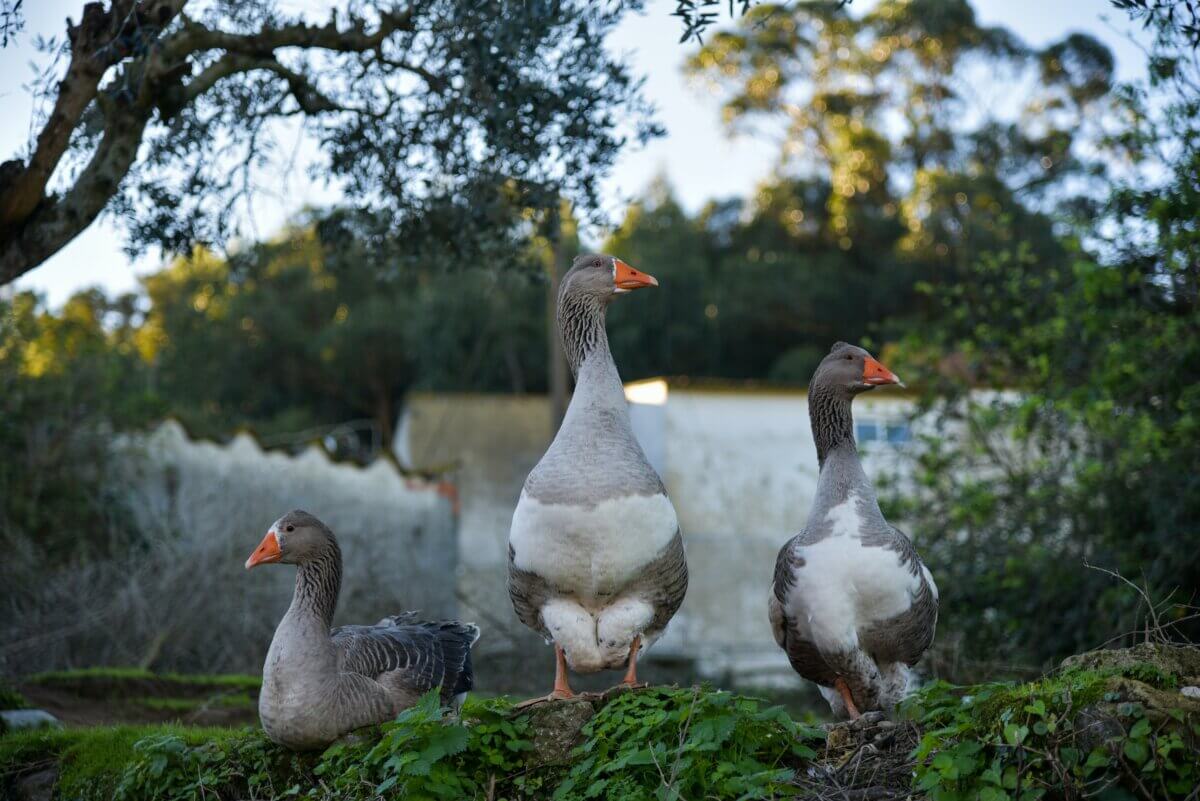
You can expect anything new or out of place to be suspicious and marked as a potential threat to the geese and the entire farm. There is no volume control, so these birds will belt out their warnings loud and clear.
Because geese are overly paranoid and excitable, they make incredible alarm systems. Contrary to popular belief, they are not actually guard birds. While large geese (with a hiss that rivals a snake and hardy wings with a heft of a two-by-four), make a less tempting target than a chicken or a small duck, they do not have the ability to fight off predators.
Remember, geese are prey animals, and if a predator wants to indulge in a goose feast, it will prevail. Still, geese will require less overwatch than smaller birds. A domestic adult goose can weigh up to 25 pounds, depending on the breed. Their size makes them much less inviting targets for predators. So, geese can serve as deterrents by making some predators think twice. Though, the larger the predator, the less likely it will be to reconsider.
The built-in alarm feature geese bring to the homestead gives us humans an insight into potential threats; mail delivery or a predator, we get a heads up. It’s a good idea to heed the warnings because it could save the lives of other animals on the farm.
Geese Lay Large Delicious Eggs
Dames lay eggs between March and June, give or take a month either way. While this isn’t much of an allotted time to reap the benefits, it is a worthwhile seasonal treat. Consider this: The yolk-to-white ratio of a goose egg is around 60:40, making these large eggs rich and creamy.
While goose eggs vary in size (like any bird) one goose egg equals about 3 to 4 chicken eggs. Consider how delicious your baked goods and pasta could be.
Depending on your location, it may be possible to make a little cash selling goose eggs. They typically sell at a premium price. Because these eggs have a thick, tough shell, they naturally keep for much longer than smaller eggs. Unwashed eggs can be kept at room temperature for about four weeks, and double that amount of time if they’re washed and refrigerated.
I have realized that you can leave the egg unwashed and place it in the refrigerator to extend the egg’s longevity. Doing so allows you to keep the eggs for 3 months or more.
Aside from their eggs, many people appreciate how delicious goose meat is. I prefer the eggs to the meat, but that’s my opinion. Not only can you enjoy the meat, you could procure a license to sell it. Have you seen the prices for goose-breast or leg quarters? You might want to have a look.
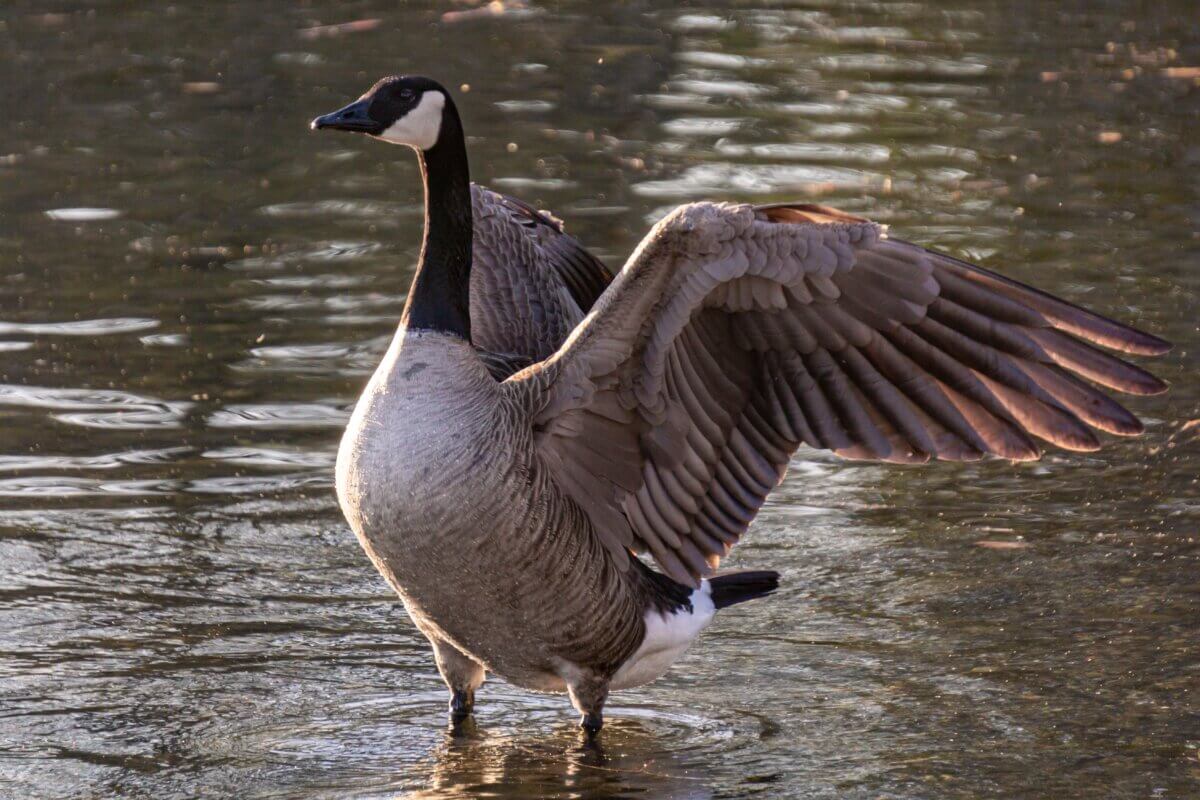
Geese are beautiful birds. They’re silly and dramatic, but they can be entertaining. Geese often get a bad rap as being mean birds, but I’d love to elaborate that geese are defensive creatures, which is what tends to make them seem mean. This defensive nature stems from being protectors for their young goslings and gaggle. They simply have big attitudes.
So those are some of the many considerations in raising geese. I think once you learn about these beautiful birds, you’ll see the pros far outweigh the cons. Happy Homesteading!



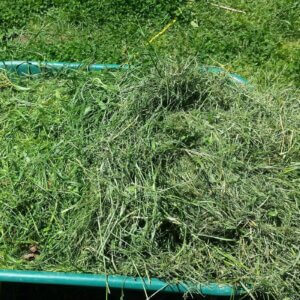







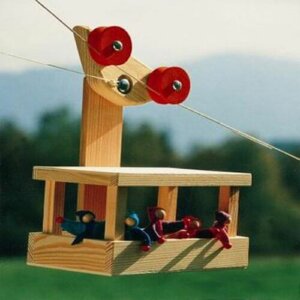










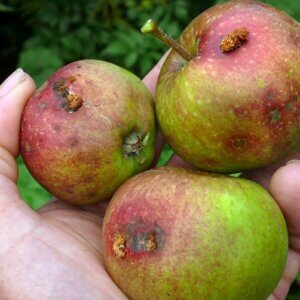




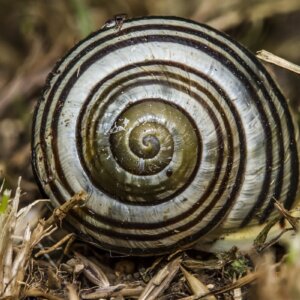

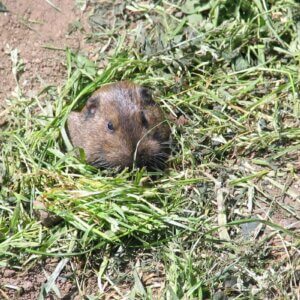


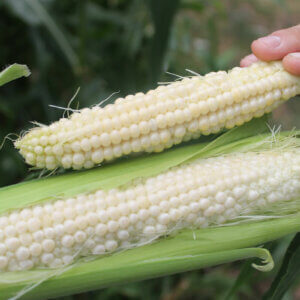

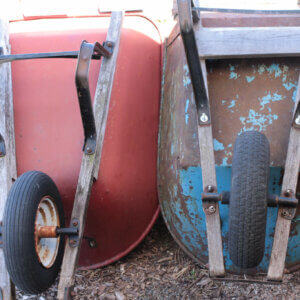



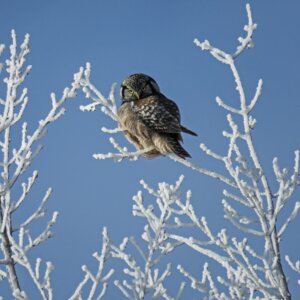



Leave a Reply